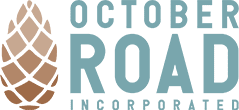Walnut Cove, North Carolina, United States
Pyramid Healthcare Walnut Cove
Unclaimed
Unclaimed
This provider hasn’t verified their profile’s information. Are you the owner of this center? Claim your listing to better manage your presence on Recovery.com.
Provider's Policy
We work with numerous insurance providers who include mental health services in their plans.

Contact Pyramid Healthcare Walnut Cove
Connect with Pyramid Healthcare Walnut Cove by calling them directly.
Are you the owner of this center?
Claim this center
About Pyramid Healthcare Walnut Cove
Pyramid Healthcare Stokes County (previously called October Road) is a behavioral health provider dedicated to offering comprehensive outpatient addiction treatment services. In May of 2023, they expanded their reach by opening a facility in Walnut Cove, North Carolina, aiming to address substance use disorders and co-occurring mental health challenges among adults in the region.
Tailored, Flexible Treatment Options
The Stokes County location provides a range of services tailored to each client's unique needs. These include intensive outpatient programs (IOP), which allow clients to receive structured therapy while maintaining their daily routines, and medication-assisted treatment (MAT) to manage withdrawal symptoms and cravings. Additionally, the facility offers both individual and group counseling sessions and comprehensive psychiatric services to support clients throughout their recovery.
Accessible Treatment
To ensure accessibility, Pyramid Healthcare accepts Medicaid, Medicare, most other insurance plans, and provides funding options for uninsured clients seeking MAT services.
Read More
Insurance Accepted
Provider's Policy:We work with numerous insurance providers who include mental health services in their plans.

Center Overview
LGBTQ+
Addiction and mental illnesses in the LGBTQ+ community must be treated with an affirming, safe, and relevant approach, which many centers provide.
Men and Women
Men and women attend treatment for addiction in a co-ed setting, going to therapy groups together to share experiences, struggles, and successes.
Treatment Focus
This center treats primary substance use disorders and co-occurring mental health conditions. Your treatment plan addresses each condition at once with personalized, compassionate care for comprehensive healing.

Care Options







Treatment
Specializations
Alcohol
Using alcohol as a coping mechanism, or drinking excessively throughout the week, signals an alcohol use disorder.
Drug Addiction
Drug addiction is the excessive and repetitive use of substances, despite harmful consequences to a person's life, health, and relationships.
Medication-Assisted Treatment
Combined with behavioral therapy, prescribed medications can enhance treatment by relieving withdrawal symptoms and focus patients on their recovery.
Approaches
Evidence-Based
A combination of scientifically rooted therapies and treatments make up evidence-based care, defined by their measured and proven results.
Personalized Treatment
The specific needs, histories, and conditions of individual patients receive personalized, highly relevant care throughout their recovery journey.
Therapies
1-on-1 Counseling
Patient and therapist meet 1-on-1 to work through difficult emotions and behavioral challenges in a personal, private setting.
Life Skills
Teaching life skills like cooking, cleaning, clear communication, and even basic math provides a strong foundation for continued recovery.
Medication-Assisted Treatment
Combined with behavioral therapy, prescribed medications can enhance treatment by relieving withdrawal symptoms and focus patients on their recovery.
Psychoeducation
This method combines treatment with education, teaching patients about different paths toward recovery. This empowers them to make more effective decisions.
Relapse Prevention Counseling
Relapse prevention counselors teach patients to recognize the signs of relapse and reduce their risk.
Conditions We Treat
Anxiety
Anxiety is a common mental health condition that can include excessive worry, panic attacks, physical tension, and increased blood pressure.
Bipolar
This mental health condition is characterized by extreme mood swings between depression, mania, and remission.
Depression
Symptoms of depression may include fatigue, a sense of numbness, and loss of interest in activities. This condition can range from mild to severe.
Trauma
Some traumatic events are so disturbing that they cause long-term mental health problems. Those ongoing issues can also be referred to as "trauma."
Substances We Treat
Alcohol
Using alcohol as a coping mechanism, or drinking excessively throughout the week, signals an alcohol use disorder.
Co-Occurring Disorders
A person with multiple mental health diagnoses, such as addiction and depression, has co-occurring disorders also called dual diagnosis.
Drug Addiction
Drug addiction is the excessive and repetitive use of substances, despite harmful consequences to a person's life, health, and relationships.
Aftercare
We love hearing about your treatment experience
Help individuals and families seeking treatment by sharing your first-hand experience with this treatment provider. Review Guidelines.


















